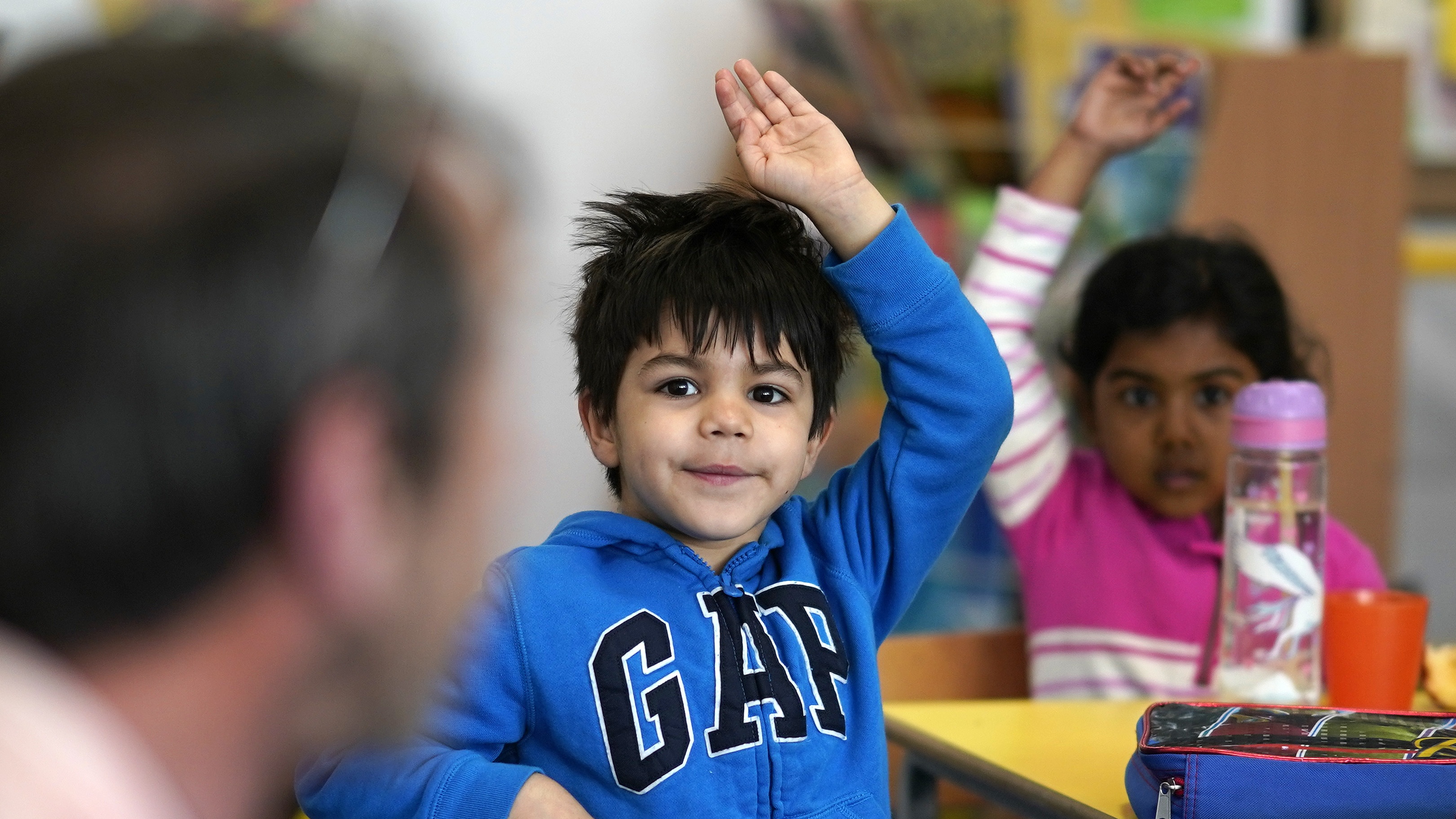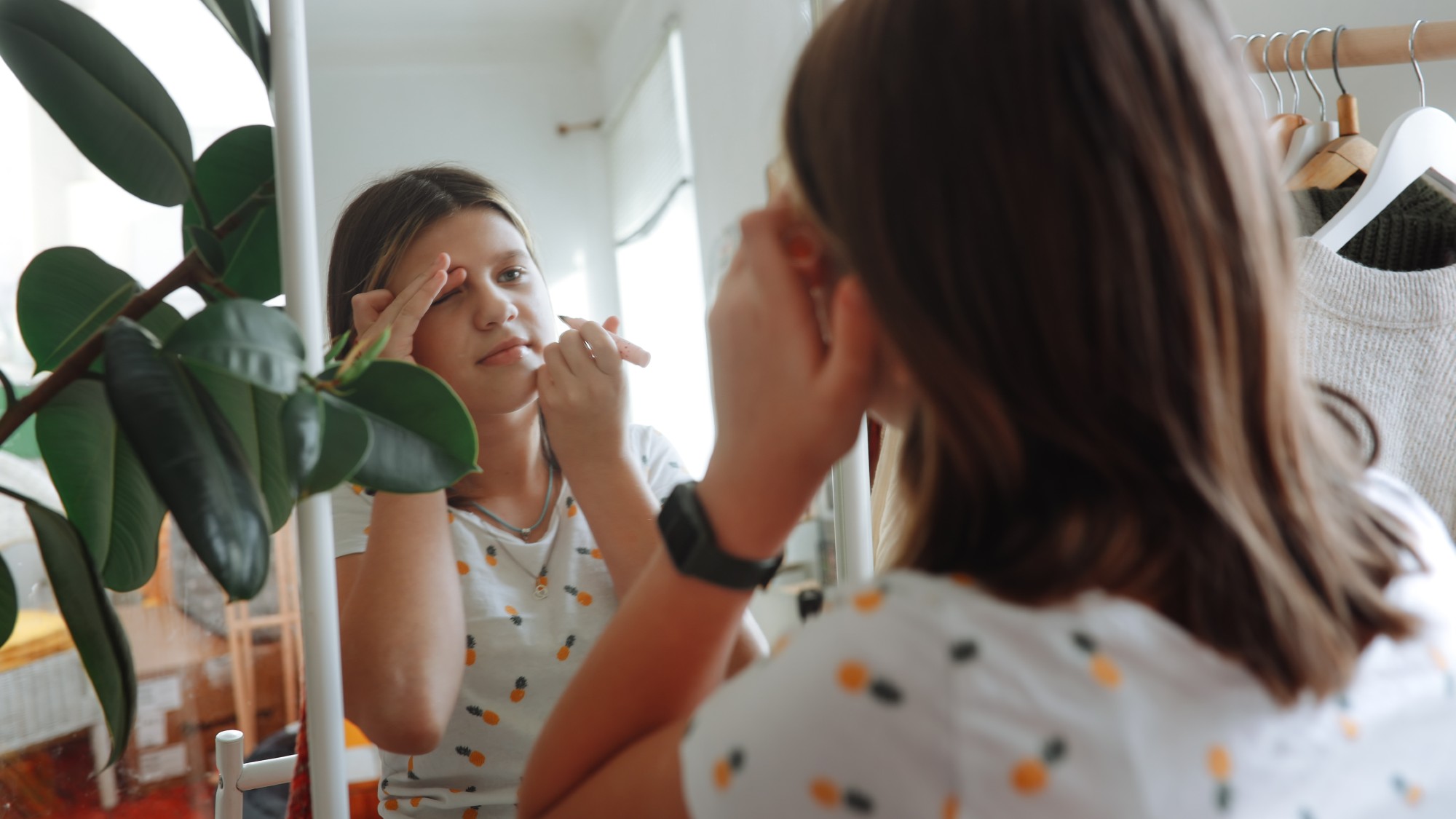Will children be vaccinated against Covid?
Return to school fuels questions about whether under-18s will get coronavirus jabs

A free daily email with the biggest news stories of the day – and the best features from TheWeek.com
You are now subscribed
Your newsletter sign-up was successful
As children across England prepare to head back to classrooms next week, anxious parents are asking when youngsters will be inoculated against Covid-19 - if at all.
A trial was launched last month to determine the efficacy of the Oxford-AstraZeneca jab in children. Around 300 volunteers signed up to help researchers assess “whether the jab produces a strong immune response in children aged between six and 17”, as the BBC reported at the time.
Research leader Andrew Pollard, Andrew Pollard, a professor of paediatric infection at Oxford University, “said it was important to establish the safety and immune response to the vaccine in children and young people as some children might benefit from vaccination”, according to the broadcaster.
The Week
Escape your echo chamber. Get the facts behind the news, plus analysis from multiple perspectives.

Sign up for The Week's Free Newsletters
From our morning news briefing to a weekly Good News Newsletter, get the best of The Week delivered directly to your inbox.
From our morning news briefing to a weekly Good News Newsletter, get the best of The Week delivered directly to your inbox.
However, a major question mark remains over whether the majority of under-18s need to be vaccinated against Covid.
A series of studies have found that children suffer from “less severe” illness if infected with the coronavirus.
Health Secretary Matt Hancock said in early December that vaccines had not been extensively tested on children because “the likelihood of children having significant detriment if they catch Covid-19 is very, very low”.
BBC health correspondent Anna Collinson told children’s news show Newsround at the time that “people aged 50 and under are at the bottom of the list, and children currently will not be vaccinated because they are low risk”.
A free daily email with the biggest news stories of the day – and the best features from TheWeek.com
That verdict about the threat to kids was echoed by a study published in the BMJ in January. The authors wrote that the “low rates of severe disease and death” among children “would suggest that they should not be prioritised for vaccination during early vaccine deployment”.
But the researchers added that “specific paediatric risk groups may benefit from immunisation during the early vaccine deployment stage”, including children with issues impacting their lungs or with immunodeficiency illnesses.
The study also noted that adults with Down syndrome and cerebral palsy were more susceptible to severe illness, and that “while such data are currently limited in children”, the conditions might “also be associated with an increased risk of severe Covid-19” in youngsters.
Joe Evans is the world news editor at TheWeek.co.uk. He joined the team in 2019 and held roles including deputy news editor and acting news editor before moving into his current position in early 2021. He is a regular panellist on The Week Unwrapped podcast, discussing politics and foreign affairs.
Before joining The Week, he worked as a freelance journalist covering the UK and Ireland for German newspapers and magazines. A series of features on Brexit and the Irish border got him nominated for the Hostwriter Prize in 2019. Prior to settling down in London, he lived and worked in Cambodia, where he ran communications for a non-governmental organisation and worked as a journalist covering Southeast Asia. He has a master’s degree in journalism from City, University of London, and before that studied English Literature at the University of Manchester.
-
 The EU’s war on fast fashion
The EU’s war on fast fashionIn the Spotlight Bloc launches investigation into Shein over sale of weapons and ‘childlike’ sex dolls, alongside efforts to tax e-commerce giants and combat textile waste
-
 How to Get to Heaven from Belfast: a ‘highly entertaining ride’
How to Get to Heaven from Belfast: a ‘highly entertaining ride’The Week Recommends Mystery-comedy from the creator of Derry Girls should be ‘your new binge-watch’
-
 The 8 best TV shows of the 1960s
The 8 best TV shows of the 1960sThe standout shows of this decade take viewers from outer space to the Wild West
-
 A Nipah virus outbreak in India has brought back Covid-era surveillance
A Nipah virus outbreak in India has brought back Covid-era surveillanceUnder the radar The disease can spread through animals and humans
-
 Trump HHS slashes advised child vaccinations
Trump HHS slashes advised child vaccinationsSpeed Read In a widely condemned move, the CDC will now recommend that children get vaccinated against 11 communicable diseases, not 17
-
 Deaths of children under 5 have gone up for the first time this century
Deaths of children under 5 have gone up for the first time this centuryUnder the radar Poor funding is the culprit
-
 A fentanyl vaccine may be on the horizon
A fentanyl vaccine may be on the horizonUnder the radar Taking a serious jab at the opioid epidemic
-
 Health: Will Kennedy dismantle U.S. immunization policy?
Health: Will Kennedy dismantle U.S. immunization policy?Feature ‘America’s vaccine playbook is being rewritten by people who don’t believe in them’
-
 How dangerous is the ‘K’ strain super-flu?
How dangerous is the ‘K’ strain super-flu?The Explainer Surge in cases of new variant H3N2 flu in UK and around the world
-
 Vaccine critic quietly named CDC’s No. 2 official
Vaccine critic quietly named CDC’s No. 2 officialSpeed Read Dr. Ralph Abraham joins another prominent vaccine critic, HHS Secretary Robert F. Kennedy Jr.
-
 The expanding world of child skincare
The expanding world of child skincareUnder the Radar Beauty line for kids as young as three sparks ‘rage’